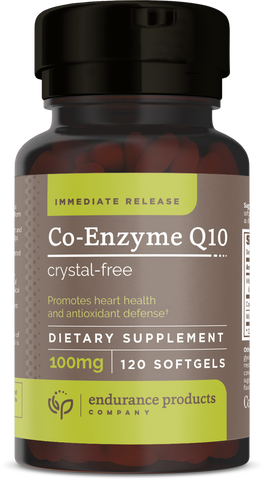Do you think that cancer is the number one killer in this country? Many people do. But in fact, it’s heart disease: Over 633,000 died last year alone. Another fact you may not know is that what you put on your plate (and in your stomach) can have a profound effect on your risk for heart disease.
Yes, plenty of foods can help lower your risk. What are they? Here are three of our favorite good-for-your-ticker foods.
1. Walnuts
Walnuts are rich in polyunsaturated fat, which can help reduce bad cholesterol levels in your blood and may lower your risk of heart disease and stroke. In one German study1, researchers asked 40 adults to consume two diets in random order. For one diet, subjects were asked to include about 10 walnuts per day for 8 weeks, replacing some foods with saturated fat. The other diet was a typical Western diet for 8 weeks. Compared with the Western diet, the walnut-enriched diet significantly lowered non-HDL cholesterol and apolipoprotein-B, an emerging risk factor for heart disease.
Walnuts are also high in antioxidants, which protect cells against damage caused by those pesky molecules called free radicals.2
Add some into your day: Add walnuts to green salad, throw some into chicken or tuna salad, or coat fish fillets with crushed walnuts before roasting.
2. Oatmeal
Not only is oatmeal creamy and satisfying, it has a greater proportion of soluble fiber than any other grain. What’s soluble fiber? It absorbs water during digestion, swelling to form a gummy material that helps slow down digestion and absorption. A meal rich in soluble fiber helps you feel full (great for dieters) and keeps your blood sugar on an even keel (great for people with diabetes). But for people interested in heart health, its real claim to fame is its ability to help lower LDL cholesterol.
Researchers have yet to confirm exactly how soluble fiber helps improve cholesterol balance, but point to three possible mechanisms of action. First, soluble fiber can help your body eliminate cholesterol. Second, its ability to help balance blood sugar also helps lower insulin-stimulated cholesterol production in the liver. Finally, soluble fiber is partially fermented in the large intestine to short chain fatty acids that promote healthy cholesterol balance.
When researchers at the University of California, Davis, looked at recent studies on the effects of soluble fiber on cholesterol levels, they found that it can reduce LDL cholesterol levels by up to 10 percent.
Add some into your day: Sub in oatmeal for breadcrumbs in meatloaf, add some into your favorite smoothie recipe, or have breakfast for dinner one day a week.
3. Flaxseed
These little seeds pack a really good-for-you punch thanks to their high fiber and omega-3 fatty acid content. They’re also rich in a certain type of phytochemical called lignans. Flaxseeds may contain up to 800 times more lignans than any other foods. The cholesterol-lowering effect of flaxseeds is attributed, in large part, to its lignan content. One double-blind, randomized, placebo-controlled trial3 found that when subjects were given a diet supplemented with 30 g of milled flaxseed, their LDL cholesterol went down by 15 percent. And they didn’t even need to wait long – the effect began as early as one month into the trial!
Add some into your day: Combine two superfoods by sprinkling ground flaxseeds onto your oatmeal. Toast flaxseeds and add to yogurt. Garnish soups with ground flaxseeds.
Lowering your heart disease risk doesn’t have to be hard. In fact, it can be delicious!
Plus, you can enjoy any of these foods as part of a heart-healthy diet whether you take a statin drug or not. But if you do take a statin, be sure to add CoEnzyme Q10 to your daily routine. Why? A growing body of research shows statins can deplete your body stores of CoQ10, and supplementation helps replenish it.*
About Endurance Products Company
Endurance Products Company has been a trusted source of quality dietary supplements since 1978. Our sustained-release and extended-release tablets feature a unique vegetable wax matrix that releases nutrients in a slow, steady manner over a period of hours for optimal nutrient absorption and retention.
References
1. Wu L, Piotrowski K, Rau T, et al. Walnut-enriched diet reduces fasting non-HDL-cholesterol and apolipoprotein B in healthy Caucasian subjects: a randomized controlled cross-over clinical trial. Metabolism. 2014;63(3):382-91. PMID: 24360749.
2. Haddad EH, Gaban-Chong N, Oda K, Sabaté J. Effect of a walnut meal on postprandial oxidative stress and antioxidants in healthy individuals. Nutr J. 2014;13:4. PMID: 24410903.
3. Edel AL, Rodriguez-Leyva D, Maddaford TG, et al. Dietary flaxseed independently lowers circulating cholesterol and lowers it beyond the effects of cholesterol-lowering medications alone in patients with peripheral artery disease. J Nutr. 2015;145(4):749-57. PMID: 25694068.
* These statements have not been evaluated by the Food and Drug Administration. This product is not intended to diagnose, treat, cure or prevent any disease.

